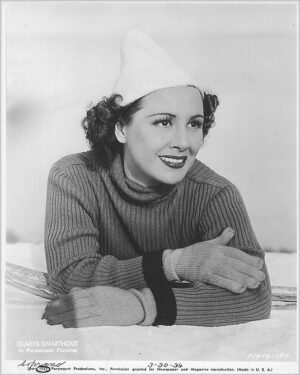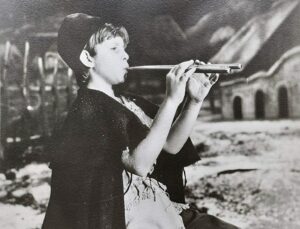Things got off to a sorry start with a heavy-handed, draggy introduction that opened onto a split-level candy-box set which should have warned us all what the future held. Then, when Miss Moffo arrived, the truth was out: this was to be a pastel “Manon” with the tints all faded. For looked at any way, Miss Moffo has a voice whose basically attractive color goes unvaried in and out of every scene and situation. In the first act, “Voyons, Manon, plus de chimères” was pale in the second, “Adieu, notre petite table,” was pallid; and the third-act Gavotte, “Profitons bien de la jeunesse,” though a touch brighter in spirit, was still rather drab. Neither was there any improvement in the following two acts. The basic stuff of Miss Moffo’s voice is attractive, but rarely is anything done to make her soprano luminous, iridescent, or varied of nuance. Her Manon, in short, was plain and ordinary. There was neither sparkle to it nor sensuousness, which made one wonder whether she was Manon at all.
Mr. Gedda, as well, was nowhere near the top of his form. Apart from an appealing “Ah, fuyez,” he seemed rather intimidated by the whole opera and even appeared uninterested when complete involvement was necessary. His enunciation, however, was exemplary – not a word was muffled or thrown away. But even his “Rêve” aria, sung at the appropriate pianissimo, lacked vocal distinction. It was lackluster, dull, even boring. His rendition provided a shadow of the Gedda we have come to know and admire. . . .
“Manon” bleeds when France forsakes it, and the new rendition seems little concerned with the elegance of French tradition. This extends to the direction, which is painfully conventional, and the sets and costumes, which are just painful. Apart from the Cours la Reine scene-with a balloon or two to give it lift-there is nothing seen on stage that any third-rate lyric theater could not provide. Viewing Act II is an experience that suggested to me that the furniture van had been lost in transit-the set is every bit that hare; and Act III seems made of cardboard from a laundered shirt.
But worst of all was that there was nothing tempting or yielding about the entire spectacle. It was all tough and splintery, and that is not what “Manon” is all about.
On this day in 1991 soprano Deborah Voigt made her Metropolitan Opera debut as Amelia.
Birthday anniversaries of tenor Dinu Badescu (1904), playwright Arthur Miller (1915) and baritone Rolando Panerai (1924).Born on this day in 1925 Dame Angela Lansbury.
Happy birthday to mezzo-soprano Jamie Barton!


